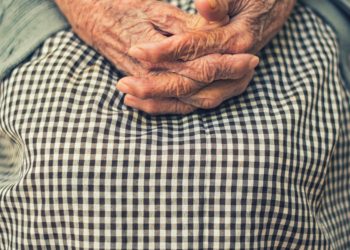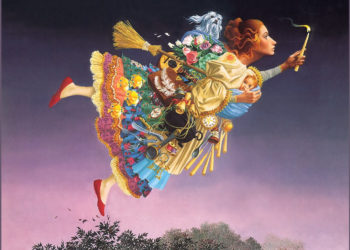Whenever I travel to Abuja, I stay at Jikwoyi. Jikwoyi is a satellite town in Karu local government area of Abuja. It is a border town and a bike ride is enough to (unknowingly) have you in Nassarawa, a neighboring state. I have been there! It wasn’t funny. While many people feel you would miss out on the whole posh, cultured Abuja experience if you stay at Karu, I love Jikwoyi for its unpretentiousness and the organic life experiences it offers.
I have had many experiences thanks to Jikwoyi.
The good.
The bad.
The hilarious- like that one time I ran after an along* in a raincoat shouting for my change.
But the most recent and most thought-provoking happened in a salon close to my aunt’s house. A stoic and graceful Yoruba woman runs the salon. Her voice is antithetical in its calmness and animation. It was late evening. The sun had long set and the cold tiles were a sharp contrast to the hot air the fan swirled around the room. The TV droned in the background, filtering in diary conversations of BBN housemates with Big Brother. Down to only two customers, me and a woman that wanted feed-in braids, the hairdresser slowed down to match the pace of the evening.
In my journey with experiencing, I observe people’s faces, nervous tics, changes in demeanor and voices, but most of all, I observe the grain and flow of their conversations. And on this warm evening, in this nondescript salon in Jikwoyi, the hairdresser and her customer were talking about relationships, their shared experiences interwoven like the network of feed-in braids on the customer’s head.

“Love na for small pikin like una,” said the customer, looking at me and offering a dimpled smile through the mirror. She was beautiful. Her complexion reminded me of a cup of creamed coffee with more coffee than cream. The orange bulb in the small room lent her face a becoming golden glow. I guessed she was Yoruba from the undulating way she pronounced words like Thursday and the certitude with which she pronounced Yoruba names during earlier conversations. I smiled and said nothing. There is something about silence during certain conversations that makes the speakers widen the conversation to include you. I stepped back each time it happened.
“He don use bad mouth comot all the love for my body. Common to bring money for food, e no dey bring again,” she said, to us and no one at all at the same time.
“Na why I use my whole mind hold this shop. Make I know say I dey get my own money and I no dey depend on am,” said the hairdresser, hands moving quickly as she finished the tips of a honey-brown braid.
“Exactly. I don start something. Even if I old, I go find something dey do. Even if na to start creche get like 5–10 assistants. Ehe, I go no say na there my retirement money dey come from. I kuku like pikin so e make. I no go be burden to my children. If them send or no send money, I go dey alright. When time reach, I go die go.” The finality of the statement hung thick, like the air around us.
I no go be burden to my children.
I won’t be a burden to my children.
Sentiments I have heard echoed by many mothers, mine included.
The customer stared blankly at the mirror, eyes blurred by memories only she was privy to. “My children be the main focus now. Na them I dey give everything. That man no be my concern.”
That alias every disgruntled wife gives her husband. The place of no return. Once a marriage gets to That-Man county, there was a snowflake’s chance in hell of it going back to being happy.
She continued her soliloquy with nothing but the blade slaps of the fan, punctuating the silence between her words. The hairdresser had muted the TV.
“I go train my daughters to be confident in themselves. You know say e get how confident you go dey man no go use you play. Them go dey humble but person no go use them play. Them no go cry cry the way I cry. I dey remember when my tears dey move am. Now e dey tell me say my tears dey annoy am, dey make am hate me more sef…”
Those words had barely left her mouth when the hairdresser intoned with so much passion, her face a mask of disapproval and rancor, “Why e no go annoy am when another girl dey outside dey suck his thing.”
Me:

The unpalatable image floated above us in the warm silence of the room. The customer schooled her face into a mask of indifference, but her eyes belied the depth of pain she obviously felt. One thing as unifying as misery is regret. This is one lesson writing as many carryovers as I have teaches you. The two women stared blankly, one at the mirror, the other outside into the cavernous, potholed roads of Jikwoyi, their shared experiences mingling and creating a blanket of sisterhood around them. The customer inhaled deeply and tore her eyes away from the mirror and looked at me, “You see in this life no marry man wey dey too dress. You know men wey appearance dey be their all and all?”
I nodded. It felt right to do so.
“No marry am. E no go ever help you or your children. Even if una dey die, even if food no dey house, e go use the small money wey im get dey kit himself. Them dey too like attention and e dey spoil marriage.” She turned her face once more to the mirror and started addressing the hairdresser, “E get one of my friend younger sister wey dey pursue one guy wey dey come for am. Say im too dey dey pray and e too dey dey church. E go pray for morning reach night. Say when dey go get time love each other.”
The hairdresser made a sound of disbelief as she parted the small tuft of hair left on the customer’s head.
“You dey mind am? She no understand. Temptation dey everly dey but if e dey inside God and temptation come, the fire of God wey dey inside am no go gree am fall.”
I could not help smiling at the imagery her words triggered. Of orange flames encircling the tempted and keeping the tempter away.
The last thing the customer said to me before she continued conversations with the hairdresser was, “If I know, I for marry Igbo man.” I smiled widely at that. Like my Mom would say, “ Ife di na be oke di na be ogini (as it is in the rat’s house, so it is in the chipmunk’s house). Tribe is not a calibrator for success in marriage.
Before she left, she laughingly commented on how he won’t even notice her hair. Bits of her stories left sad pockets in the air that widened in her absence. The conversations between the two women reminded me of characters from “Mororo’s Masterpiece” and the eponymous story of Abubakar Adam Ibrahim’s short story collection, “ Dreams and Assorted Nightmares.”
Long after the lady left, long after the hairdresser painted my nails a dusky pink and I picked my way down the steep incline to my aunt’s apartment, I kept thinking of the conversations at the shop.
Of the experiences of love from Jikwoyi.
Of the slow transition of (some) relationships from enamored happiness to affectionate indifference before finally ending up in That-man/This-woman county.
Of the dreams crushed, and the assorted nightmares left in the flotsam and jetsam of a dead/dying marriage.
Of why some relationships had more staying power than others, even when composed of two wonderful individuals.
Of how marriages become roommate-ships where one or both couples start living or staying solely for the children.
Of how it is to be a child in this family; of loving and being loved so much by your parents, but never seeing that love shared between them.
I kept thinking of the coffee-and-cream complexioned lady and wondering how different she must have looked when she believed in happy endings and was truly and completely in love.
Glossary
Along- Abuja-speak for taxis (that are not Uber)
Originally published on Medium.
Like what you read? Check out The Ultimate Hack to Writing Better and Blackstone and the Halloween Assumption.







